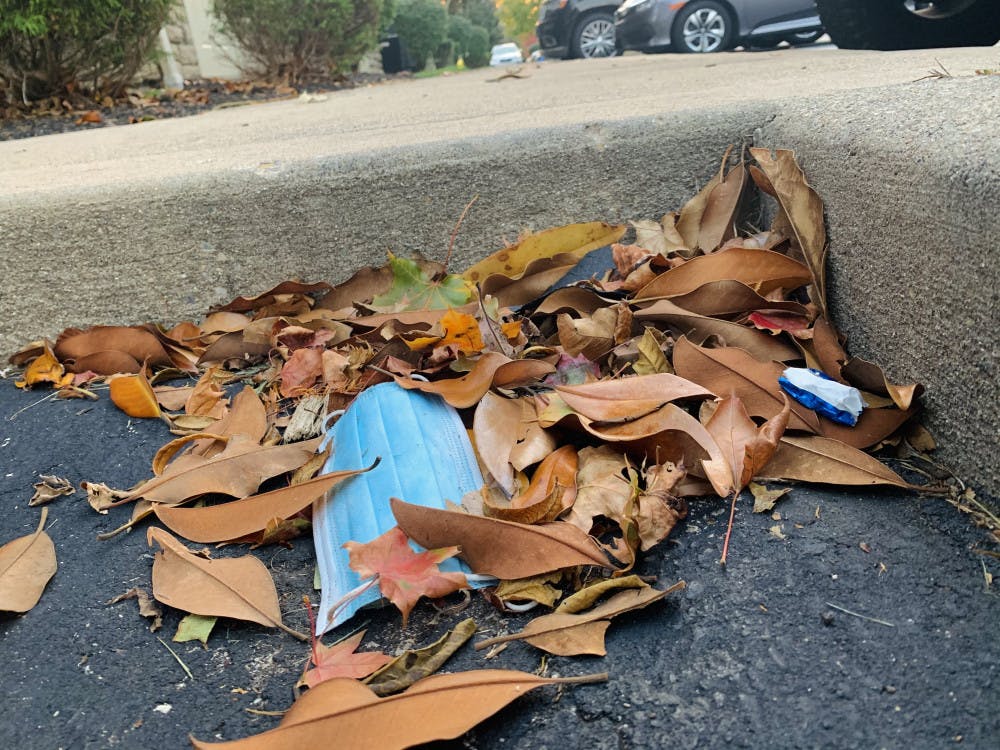By: Lindsay Cook
Sunday, Oct. 13 will mark seven months since the World Health Organization labelled COVID-19 as a pandemic. Despite the despairing headlines that permeate every website and social media platform, it would be remiss of us not to acknowledge some victories, no matter how small. One such victor stands out: the environment. While we lamented being trapped indoors, the outdoors celebrated and thrived. Improved air quality, less beach pollution, even animals roaming in deserted city streets - these small and unexpected shifts, though somewhat diminished as society has slowly begun to reopen, gave the environment a break from dealing with human interference. However, a new concern has started to emerge as we return to old habits: what happens to all these disposable masks?
It’s the “new normal,” as they say. Many of us have adopted the instinct of always keeping a mask handy: one in your backpack, one in your car, and maybe an extra one in your purse for good measure. But on the off chance that you forget your mask, many restaurants and stores provide disposable masks for your convenience.
Unfortunately, some Oxford residents have a tendency to miss the trash can . . . a lot.

Beautiful sights on campus and Uptown have lost their luster as discarded blue masks stick out like sore, non-biodegradable thumbs. On a walk around my apartment complex, I counted six masks littered in the grass, on the pavement, and hanging off of shrubs. Like many others, I don’t want this to be part of the “new normal.”
Obviously it’s not just Oxford; COVID has hit the United States and many other countries extremely hard, and I’m sure there’s a fair share of mask pollution blame to go around. With that being said, I feel compelled to call on our community, one that prides itself on the unique and picturesque beauty of our campus and surrounding area, to do better.
Realistically speaking, we have to weigh our options: if a disposable mask prevents someone from spreading this virus and risking the health and well-being of others, then it becomes a necessary evil, but an evil we might be able to minimize. How?
- Buy reusable masks. If COVID sticks around for a while - and it almost certainly will - it’s really worth buying a few. Some organizations even donate mask purchase proceeds to good causes - check it out!
- Make your own mask. If the pandemic has left your budget a little tight, a quick Google search might be worth the time. GreenHawks Media even has its own tutorial right here on our website. Given that we are seven months into this pandemic, there are a multitude of DIY mask tutorials at your fingertips; even if you have a mask already, it may be a good idea to have a backup.
- Hand-wash your disposable masks. Machine-washing takes a significant amount of energy, and most store-bought masks come with instructions on how to hand-wash them.
- If you have to use a disposable mask, throw it away! They can become a choking hazard for animals, and eventually the plastic will break down and make its way into the food and water we consume, and I’m not particularly keen on eating plastic.
- Do not try to recycle disposable masks. Even though they are typically made from plastic, they cannot be recycled and can damage recycling equipment as well as put waste disposal workers at risk.
Enjoy what you're reading?
Signup for our newsletter
I think we can all agree that COVID has been, at the very least, a significant inconvenience in our lives. Let’s do our part to make sure that it doesn’t become one for the environment as well.
Photo courtesy of Lindsay Cook




